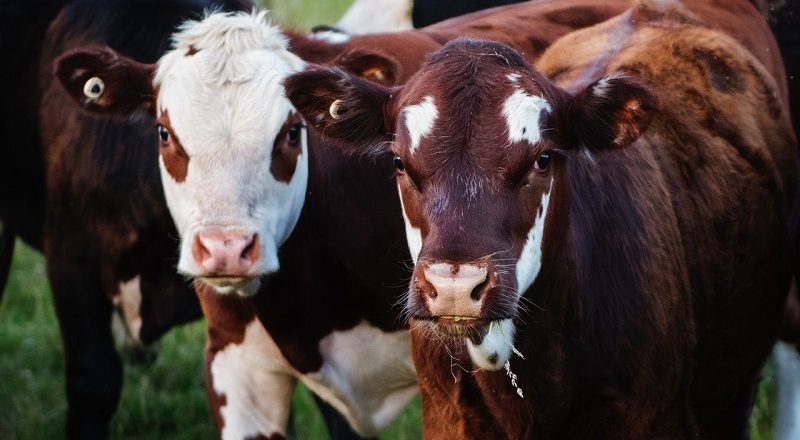
Strong reductions in methane from animal feed
Selected strains of probiotics added to feed would reduce the methane produced by ruminant activity by more than 60%. This is very good news for mitigating greenhouse gas emissions.
Long live scientific research. We are close to a breakthrough in the livestock field: probiotic additives for animal feeds have been identified, capable of reducing by more than half the methane emitted by cattle, which then pours into the atmosphere.
According to preliminary data from in vitro tests, a probiotic additive has been developed, consisting of a combination of three selected groups of bacteria, which, added to the feed, would induce a 68% reduction in methane. In contrast, another probiotic additive, consisting of only one strain of bacterial microorganisms, would induce a 78% reduction. Both are made up of non-GMO probiotic strains, which, in addition to reducing polluting emissions, in dairy cattle, would naturally increase milk production.
At the head of the innovative discovery is a company that deals with the supply of biotechnological products with low environmental impact, which recently invested in developing feed additives to reduce the amount of methane gas in the atmosphere caused by ruminants. It’s called Locus Agricultural Solutions. After spotting various mixes of probiotic strains from animal feeds capable of counteracting the development of cattle-related methane, it’s having them tested in the lab by the University of California, Davis, with field trials set for early next year. If the latter confirmed the results of the in vitro tests, it would be a real breakthrough in the fight against methane emissions.
Methane is released from ruminants either through discharging or belching. It is necessary to eliminate gases that naturally form in significant quantities during bacterial fermentations involved in the animal digestion process and through methane and nitrous oxide emissions released during the fermentation process of their ejections.
Selected strains of #probiotics when administered in adequate quantities: they mitigate the #emissions of climate-altering gases from ruminants, stimulate greater milk production and improve the intestinal #microbiome. Click To TweetIt is no coincidence that how to act on animal nutrition reduces methane has been studied for some time. What is new is that percentages capable of making a difference have been reached this time if these feeds added with ad hoc probiotics were used for farms worldwide.
In technical jargon, we talk about Direct-Fed Microbials (DFM) – probiotics – essentially live microorganisms that, when administered in adequate quantities (otherwise, there is a risk of fatally altering the pH and causing acidosis in animals), have benefits for animals’ health. In this case, the selected strains would mitigate the climate-changing gas emissions of ruminants, stimulate higher milk production and improve the gut microbiome. How? By acting through competitive inhibition in the cow’s stomach, methanogens (the methane-producing microorganisms) are overwhelmed by probiotic bacteria.
The marketing objectives and, therefore, the distribution of these foodstuffs seem practicable in theory. Firstly, dose tests are being carried out to identify the most effective quantities to be added to feed; secondly, the price is competitive, so there will be no cost issues. Their safety is guaranteed by the AAFCO Association, which develops rules and regulations for the production, distribution and sale of animal feed. Finally, microbiotic additives are stable and can be administered pelletized or in dry powder to be added to drinking water or feed.
It only remains to wait for the data of the field tests, considering that the preliminary tests carried out in the laboratory until now give good hope.



